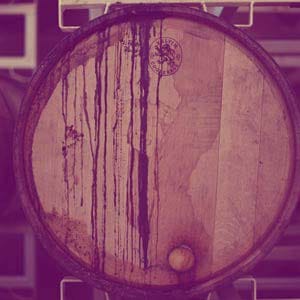Starting with our Complete Beginner’s Guide to Organic Wine, there is a lot of confusion about what organic wine means. Some people think it’s healthier, while others believe it tastes better. In reality, organic wine is neither healthier nor better-tasting than conventional wine. So what, then, is the point of drinking organic wine, and what does organic wine mean? Read on to find out!
Table of Contents
What Does Organic Wine Mean?
Organically farmed grapes are grown without synthetic fertilizers, pesticides, or herbicides. In the United States, organic wine must be made from organically grown grapes. However, it can also contain sulfites (a chemical often used in winemaking as a preservative).
What Are Sulfites?
Sulfites are a type of preservative used in winemaking. All wines contain sulfites, but organic wines must have a lower content than conventional wines. Sulfites can cause allergic reactions in some people, so it’s essential to check the label before buying a bottle if you’re sensitive to them.
Organic Grapes vs. Conventional Grapes

The benefits of organic grapes are many. But, unfortunately, your standard-grown grapes are treated with fungicides, insecticides, and herbicides, leaving residues on the fruit or absorbed into the grape flesh. These chemicals can have adverse effects on both the environment and human health.
On the other hand, organically farmed grapes are grown without using these harmful chemicals, which means that the grapes are not exposed to the potential health risks associated with synthetic pesticides and fertilizers. In addition, organic farming is better for the environment as it does not rely on chemical inputs, which can leach into groundwater or runoff into local waterways.
What Does Certified Organic Wine Mean?
To be certified as organic, wine must meet specific requirements set by the United States Department of Agriculture (USDA). These requirements include the wine being made with organically grown grapes, displaying the USDA organic seal on the label, and making 100% organic ingredients.
Certified organic wines can also carry additional certification labels such as “Demeter Certified Biodynamic” or “Certified Naturally Grown.” These labels indicate that the wine has been made using biodynamic or organic methods but may not meet the USDA organic certification requirements.
What Synthetic Chemicals Are Usual In Wine-Making?
There are a few different types of synthetic chemicals that are usually found in conventional wine. The most common type is sulfites, which are used as a preservative. Other synthetic chemicals can include:
- Potassium sorbate: A preservative that inhibits the growth of yeast and bacteria.
- Sodium benzoate: A preservative that prevents the growth of yeast and bacteria.
- Metabisulfites: A type of sulfite used to avoid oxidation.
- Acetaldehyde: A chemical that is produced as a result of fermentation. It can cause adverse reactions in some people.

Are There Any Adverse Health Effects Associated With Conventional Wine?
There are a few potential health risks associated with conventional wine. The most common is an allergic reaction to sulfites, which can cause symptoms such as headaches, skin rashes, and asthma attacks.
Other potential risks include:
- Exposure to harmful chemicals used in winemaking, such as pesticides and herbicides.
- Exposure to acetaldehyde, a chemical produced as a result of fermentation.
- Exposure to heavy metals, such as lead and arsenic can be found in some wine bottles.
Are There Any Adverse Environmental Effects Associated With Conventional Wine?

Conventional wine production can have adverse environmental effects. One of the biggest concerns is pesticides, herbicides, and insecticides. These chemicals can leach into groundwater or runoff into local waterways, where they can cause harm to aquatic life.
In addition, conventional wine production relies on chemical inputs such as fertilizers and yeast starters. These inputs can release nitrogen and phosphorus pollutants into the environment, contributing to algal blooms and water pollution.
Are There Any Advantages To Buying Organic Wine?
Certified organic wine has several advantages over conventional wine. It is made with organically grown grapes that have been grown without harmful chemicals, so it may be less likely to cause adverse health effects. It is also better for the environment as it does not rely on chemical inputs, leaching into groundwater, or running into local waterways.
Organic wine can also carry additional certification labels such as “Demeter Certified Biodynamic” or “Certified Naturally Grown.” These labels indicate that the wine has been made using biodynamic or organic methods but may not meet the USDA organic certification requirements.
Are Organic Wines Biodynamic?
Organic wines can be either organic or biodynamic. Certified organic wines meet the requirements set by the USDA for organic certification. In contrast, biodynamic wines go beyond these requirements and meet additional standards set by the Demeter Association.
Why Is Organic Wine More Expensive?

Certified organic wine is more expensive than conventional wine because it is made with organically grown grapes that have been grown without the use of harmful chemicals.
.
Are Organically Grown Grapes More Expensive?
Organically grown grapes are more expensive than conventionally grown grapes because organic farming practices require more time, labor, and resources than conventional farming practices. In addition, organic grapes may be less productive than conventionally grown grapes to sell for a higher price.
Do Organic Grapes Taste Better?
There is no scientific evidence to suggest that organic grapes taste better than conventionally grown grapes. However, many people believe that they do taste better, as they are not exposed to the chemicals used in conventional farming.
Is Organic Wine A Better Final Product?
Organic wine may be better for your health than conventional wines, but there’s no evidence to suggest that it will make a difference in taste. However, organic wines may be less likely to cause adverse health effects, such as headaches, nausea, and allergies. They are also better for the environment as they do not rely on chemical inputs, leaching into groundwater or running into local waterways. Finally, certified organic wines carry additional certification labels such as “Demeter Certified Biodynamic” or “Certified Naturally Grown.” These labels indicate that the wine produced was made using biodynamic or organic methods but may not meet the USDA organic certification requirements.
What Does Organic Wine Mean vs. Natural Wine?
There is no standard definition for “natural wine,” so it can be challenging to determine what this term means. However, many people believe that natural wines are made from grapes that have been grown without the use of harmful chemicals. Natural winemaking is also made without adding sulfites, commonly used to preserve wine. Natural wines may also be referred to as “sustainable wines”.

Is The Winemaking Process The Same With Organic Wines?
The winemaking process is generally the same for organic and conventional wines. However, biodynamic wines must be made using biodynamic methods, which can be more time-consuming and labor-intensive. In addition, biodynamic wines may be less productive than conventional wines to sell for a higher price.

How Many Organic Vineyards Are In The United States?
As of 2019, there are over 12,000 certified organic vineyards in the United States. However, this number is likely to increase in the future as more people become aware of the benefits of organic wine.
How Many Certified Organic Wines Are There In The United States?
As of 2019, there are over 2,500 certified organic wines in the United States. This number is likely to increase in the future as more people become aware of the benefits of organic wine.
Is Biodynamic Wine More Popular?
There is no definitive answer as biodynamic wine is a relative niche market. However, there are indications that biodynamic wine is becoming more popular, as the number of certified biodynamic vineyards and biodynamic farming has increased significantly in recent years.

How Long Has Organic Winemaking Been Occurring?
The first organic wine certification was granted in 1990 to the Domaine de la Romanee-Conti winery in Burgundy, France, one of many wine producing countries. This winery had a history of using organic farming methods dating back to the 1920s. As a result, they became known as one of the first producers of organic wine globally.
The USDA then began regulating organic winemaking in 2006 due to the increasing popularity of this type of wine.
It is worth noting that not all organic wines meet the requirements of the USDA. Wine labeled certified organic by the USDA, the wine must be made with 100% organically grown grapes. It must also be made without synthetic fertilizers, pesticides, or herbicides. The wine must also be processed without using sulfites, commonly used to preserve wine. Finally, the winery must meet many other requirements to be certified organic.
So now if you’re asked “what does organic wine mean”, you have all of the information you may need. Next, let’s find out what makes organic wine different from conventional wine.